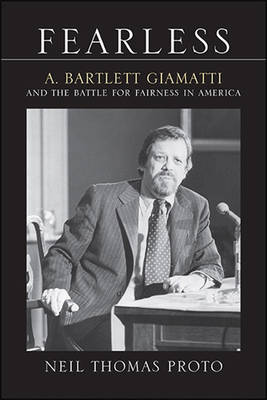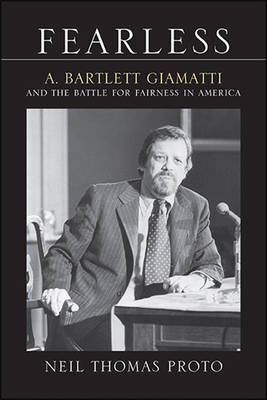
- Retrait gratuit dans votre magasin Club
- 7.000.000 titres dans notre catalogue
- Payer en toute sécurité
- Toujours un magasin près de chez vous
- Retrait gratuit dans votre magasin Club
- 7.000.0000 titres dans notre catalogue
- Payer en toute sécurité
- Toujours un magasin près de chez vous
Description
Biography of the early years of A. Bartlett Giamatti, who would become Yale University's first non-Anglo-Saxon Protestant president and commissioner of Major League Baseball.
Finalist for the 2021 The Next Generation Indie Book Award in the Autobiography/Biography Category presented by the Independent Book Publishing Professionals Group
Bronze Winner, 2020 Foreword INDIES Book of the Year Award in the Biography Category
In 1977, a thirty-nine-year-old Italian American professor of Renaissance literature, A. Bartlett Giamatti, was chosen as the next president of Yale University, a radical act that was immediately perceived as a threat to the university's embedded, eugenics-driven, Anglo-Saxon mentality. Eugenics, as practiced in America, and especially at Yale, locked into place those who were deemed "unfit" due to beliefs about their ethnicity, class, and racial character, beliefs that had endured for decades and to which Giamatti's selection, as an Italian American and therefore, to some, one of the "unfit," was an open rebuke.
In Fearless, Neil Thomas Proto explores the origins of Giamatti's ethical convictions, including his insistence on fairness, his respect for the duty of responsible citizenship, and his advocacy for people on the margins. Proto argues that these convictions, which would inform Giamatti's time at Yale as well as his brief tenure as commissioner of Major League Baseball, can be understood only in the context of Giamatti's family and the deeply entwined and conflicted histories of Yale and New Haven itself-a history that Giamatti, who had been both a student and a professor at Yale and who had Italian American relatives in New Haven, knew very well.
Historian Sean Wilentz wrote that "Bart Giamatti was a phenomenon who lived the lives of several men even though his own ended tragically early." Giamatti confirmed his underlying imperative through to the end of his life: "Rest," he wrote, "will come by never resting." Fearless is a story about persistence against forces ugly, embedded, and more pernicious than simply racial and ethnic discrimination, and about the principled embrace of civic duty passed on generationally and used fully as the ethical sword and shield necessary to challenge them.
Spécifications
Parties prenantes
- Auteur(s) :
- Editeur:
Contenu
- Nombre de pages :
- 470
- Langue:
- Anglais
- Collection :
Caractéristiques
- EAN:
- 9781438479637
- Date de parution :
- 01-05-20
- Format:
- Livre relié
- Format numérique:
- Genaaid
- Dimensions :
- 155 mm x 218 mm
- Poids :
- 839 g

Les avis
Nous publions uniquement les avis qui respectent les conditions requises. Consultez nos conditions pour les avis.






